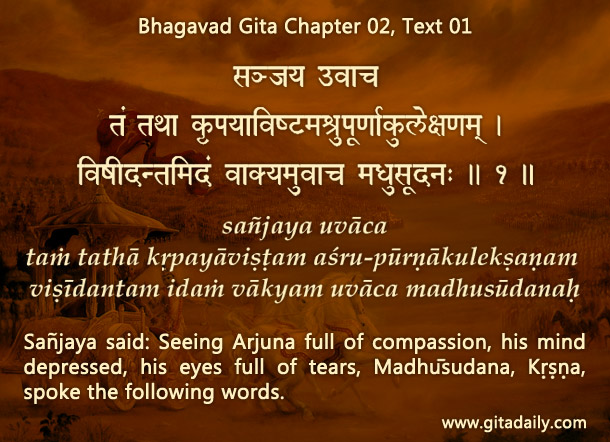The Bhagavad-gita’s beginning demonstrates the devastating power of emotions. When attacked by negative emotions, Arjuna, a battle-hardened warrior, was reduced to tears (02.01) and could no longer fight (02.09).
How do emotions attack? By fixating us on one perspective and one narrative – they make us believe, “This is how things are, and this is how they are going to play out.” Over-reacting to such one-sided perception, we act imprudently, even self-destructively.
Of course, emotions themselves aren’t bad; they are integral to our very being. What is bad is our readiness to uncritically believe all our emotions. We need to process them with another integral feature of our being, our reason – our capacity to think dispassionately. When emotions start driving us wild, reason is our brake. Just as vehicles without brakes are doomed, so are people without the brake of reason.
Can our own reason counter emotion? Sometimes. Frequently however, emotions are just too powerful. We need to complement our human reason with divine reason, which the Bhagavad-gita provides. Gita wisdom explains that we are at our core souls, who are eternal parts of Krishna, and are on a multi-life journey of spiritual evolution. To further our evolution, we need to evaluate our emotions through the lens of divine reason and choose those emotions that are uplifting.
Equipped with divine reason, Arjuna understood that by fighting as a service to Krishna, he would himself evolve spiritually. And he would help his opponents too – he would stop their spiritual devolution by freeing them from the positions of power that were fueling their viciousness.
Whenever we find ourselves getting too emotional, we can turn to the Gita to balance our understanding. Then, just as Arjuna regained his calm (18.73) and acted effectively (18.78), we too will get the twin gifts of inner calmness and outer effectiveness.

To know more about this verse, please click on the image
Explanation of article:
Podcast:

emotion and reason are the two sides of a coin